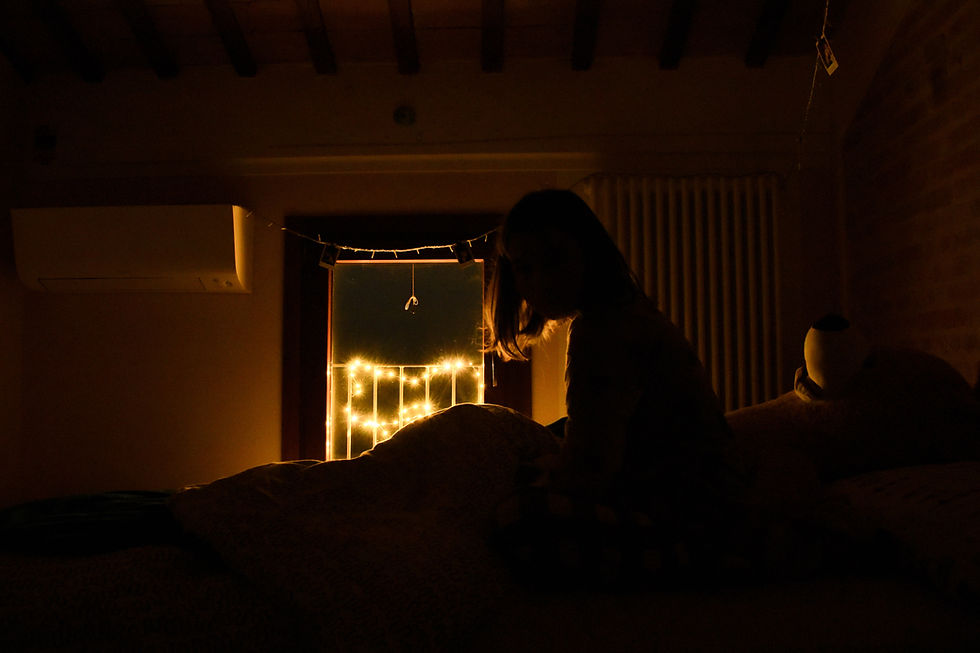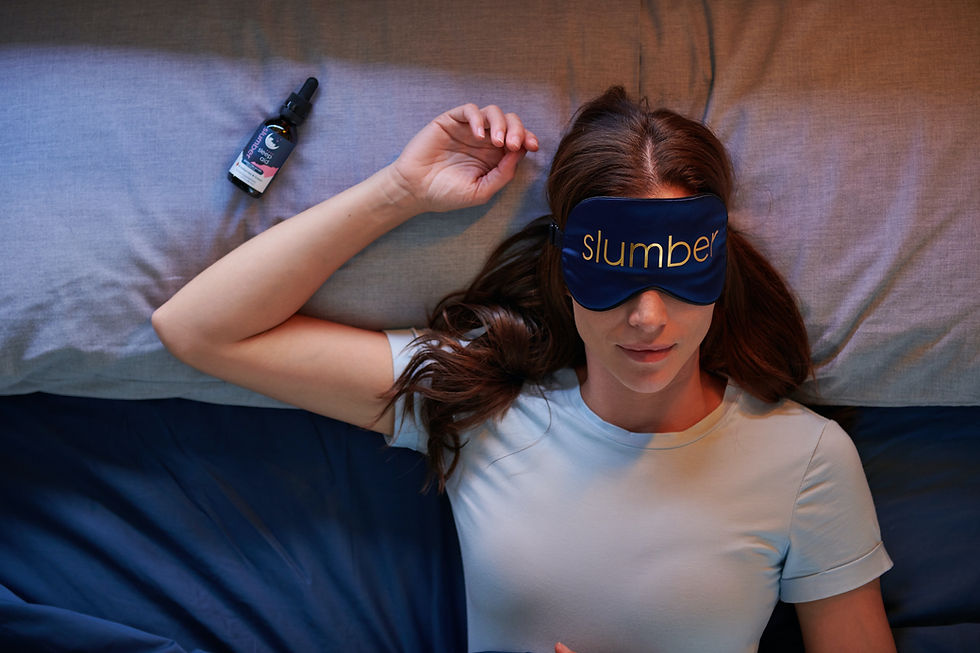What Happens When You Don't Get Enough Sleep? Insomnia & Sleep Deprivation
- Dr. Sheroze Ullah Khan

- Aug 18, 2023
- 3 min read
Introduction:
As we have learned that sleep is an integral part of the normal biology of humans and plays a fundamental role in ensuring that we can perform our daily activities at full capacity. In this article we shall take a look at two related concepts; Sleep Deprivation & Insomnia.
Insomnia is a sleep disorder characterized by difficulty falling or staying asleep, while sleep deprivation refers to not getting enough sleep due to various external factors.
Both conditions can have negative effects on physical and mental well-being, but they have different underlying causes and implications.

Sleep Deprivation & Insomnia:
Sleep deprivation refers to a state in which an individual consistently obtains less sleep than their body requires for optimal functioning. This can result from various factors such as work demands, social activities, parenting responsibilities, or lifestyle choices. Sleep deprivation can lead to similar symptoms as insomnia, including fatigue, impaired cognitive performance, mood disturbances, and increased susceptibility to health problems.
Insomnia is a sleep disorder characterized by persistent difficulties in falling asleep, staying asleep, or experiencing restful sleep, despite adequate opportunities to sleep. It can be caused by various factors such as stress, anxiety, medical conditions, medications, and lifestyle choices. Insomnia often leads to daytime impairment, including fatigue, irritability, difficulty concentrating, and reduced overall functioning. It is classified into two main categories: acute insomnia, which lasts for a short period due to temporary stressors, and chronic insomnia, which persists for at least three nights a week for three months or more.
Some Common Causes:
Let's take a look at some of the common causes of Sleep Deprivation and Insomnia.
Stress and Anxiety:
Racing thoughts and worries can hinder the ability to relax and fall asleep. When we are overthinking or our mind is filled with worrisome thoughts, it keeps our brain active and causes difficulties in falling asleep.
Poor Sleep Hygiene:
Irregular sleep schedules, excessive screen time, and unhealthy bedtime habits contribute to insomnia. In the modern age, excessive exposure to artificial light sources (Phones, Computers, Ambient Lights) disrupt our Circadian Rhythms.
Medical Conditions:
Chronic pain, respiratory disorders like Sleep Apnea, and neurological conditions can disrupt sleep patterns.
Mental Health:
Disorders like depression, anxiety, bipolar affective disorder, and PTSD are closely linked to insomnia. A lot of mental health disorders or conditions are accompanied with disturbed sleep or insomnia.
Medications:
Certain medications, including stimulants and antidepressants, can interfere with sleep.
Substance Use:
Excessive caffeine, nicotine, and alcohol consumption can disrupt sleep. Illicit drugs like Ice (crystal Meth), Party Pills/Ecstacy (MDMA) & Acid (LSD) can cause restlessness and sleep deprivation.
Shift Work and Jet Lag:
Disruptions to the body's circadian rhythm can lead to insomnia. Irregular Sleep Schedules, Excessive exposure to light and night time work shifts can all cause sleep deprivation.

Effects of Sleep Deprivation on the Mind and Body:
Now we've read a lot about the importance of sleep and looked at some of the causes of Sleep Deprivation. It's time now to look at what a lack of Sleep can actually do to your mind and body.
Cognitive Impairment:
Sleep deprivation impairs attention, memory, decision-making, and problem-solving. Sleep is important for the brain to work at optimal levels.
Emotional Distress:
Insomnia is associated with increased irritability, mood swings, and heightened stress.
Physical Health:
Insufficient sleep is linked to an increased risk of obesity, diabetes, heart disease, and immune dysfunction.
Mental Health:
Chronic insomnia is a risk factor for the development of mental health disorders like depression and anxiety.
Reduced Performance:
Decreased sleep quality affects work productivity and overall performance in daily activities.
Impaired Immune Function:
Sleep deprivation weakens the immune system's ability to fight off infections.
Metabolic Imbalance:
Sleep disturbances can disrupt the body's hormonal balance, leading to metabolic issues.

Conclusion:
As we have explored in the above article, Sleep Deprivation and Insomnia are not just an inconvenience for the night and persistent sleep deprivation can significantly reduce your performance levels in your daily activities and severely reduce the quality of your life. Therefore it is essential that all of us get an appropriate amount of sleep at night to ensure maximum performance levels during the day. In our next article, we'll discuss some ways to clinically treat sleep deprivation and insomnia focusing on the current treatment options available. We shall take a look at how we ourselves can improve the quality of our sleep.
In the journey towards restful nights, let us tread with mindfulness, understanding, and a commitment to the profound significance of rest.



1 Comment